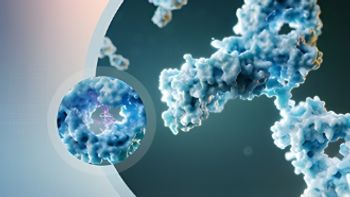Study: Labeling Inaccuracies in Hemp-Derived CBD Products
A recent study analyzed nearly 100 CBD products to test the accuracy of advertised cannabinoid content.
A recently published review article, originally covered by our sister brand Cannabis Science and Technology, discussed a study about testing for inaccuracies in hemp-derived cannabidiol (CBD) products.
A recent study found that a high percentage of various types of hemp-derived cannabidiol (CBD) products contained inaccurate claims on their labels. The 97 products tested in this study consisted of haircare and cosmetic items, food, drinks, and edibles that were purchased in 2020 in Maryland from both retail stores and online. All the products’ labels claimed they contained CBD or specified amounts of CBD that the product contained.
Using gas chromatography-mass spectrometry (GC-MS), the researchers measured the cannabinoid concentration of each product, compared it to the advertised amount, and measured the deviation.
Overall, most of the labels were found to contain inaccurate information regarding CBD content. In particular, 10 products were determined to not contain any CBD.
Some of the other results included (1):
- Of the 71 products with a specific total CBD amount on the label:
- 35 (49%) were underlabeled (>10% more CBD than advertised)
- 27 (38%) were overlabeled (>10% less CBD than advertised)
- 9 (12.7%) were accurately labeled (within ±10% of labeled CBD)
- The median (range) percentage deviations were:
- -53% (-100%-76%) for haircare products
- +18% (-100%-1076%) for cosmetics
- -1% (-100%-4468%) for food/drinks
The products tested included ones that stated claims for third-party testing, though the accuracy of CBD content did not differ significantly between products with and without external testing claims.
“Many products made therapeutic claims or used marketing tactics to seemingly convey they were safe/healthy, but only about one-third included disclaimers that these statements had not been evaluated by the FDA,” the researchers also concluded. “These findings highlight the need for proper regulatory oversight of cannabinoid-containing products to ensure quality assurance and deter misleading or unfounded health claims in product marketing.”
Reference
(1) Dowd, A. N.; Zamarripa, C. A.; Sholler, D. J.; Cone, E. J.; Murphy, T. P.; ElSohly, M.; ElSohly, K.; Gul, W.; Shahzadi, I.; Mullen, L. D.; Winecker, R. E.; Flegel, R. R.; Vandrey, R.; Spindle, T. R. Cannabinoid Content and Label Accuracy of Various Hemp-Derived Haircare, Cosmetic, and Edible Products Available at Retail Stores and Online in the United States. Cannabis and Cannabinoid Research 2024. Advance online publication. DOI:
Newsletter
Join the global community of analytical scientists who trust LCGC for insights on the latest techniques, trends, and expert solutions in chromatography.





